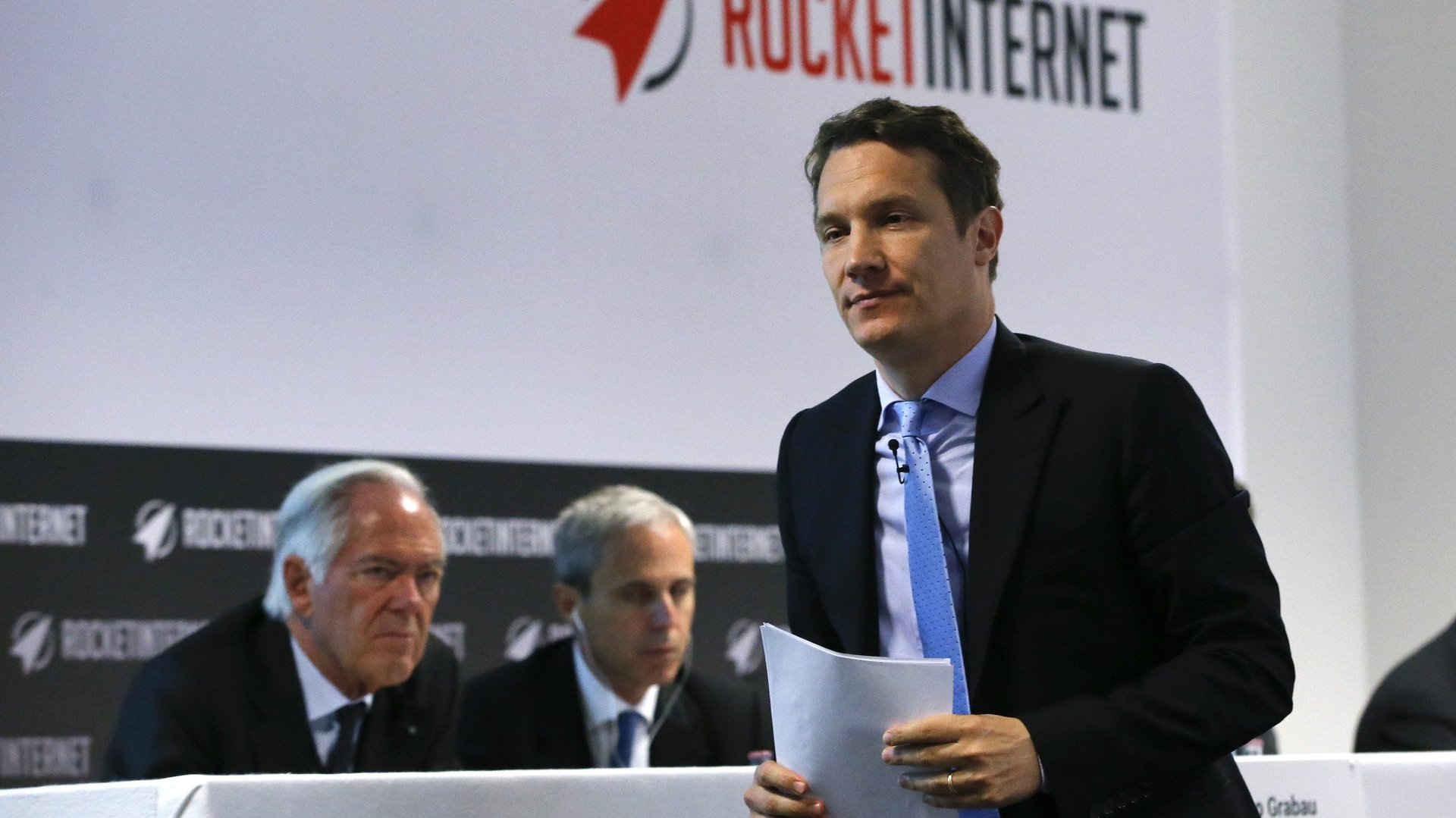Rocket Internet is raising plenty of money, but its stock is still getting hammered
Rocket Internet, among the largest listed internet companies in Europe, announced today (July 22) that it closed a €330 million ($364 million) funding round for Global Fashion Group, one of its portfolio companies that sells clothing online on several continents, and that it was oversubscribed. The round was 10% larger than anticipated, Rocket said. So why is its stock, listed in Frankfurt, cratering? It’s down more than 5% today.


Rocket Internet, among the largest listed internet companies in Europe, announced today (July 22) that it closed a €330 million ($364 million) funding round for Global Fashion Group, one of its portfolio companies that sells clothing online on several continents, and that it was oversubscribed. The round was 10% larger than anticipated, Rocket said. So why is its stock, listed in Frankfurt, cratering? It’s down more than 5% today.
Rocket, which starts up copycat versions of e-commerce sites like Amazon and Expedia in untapped markets, first announced the round of funding in April. It was a signal to investors that all was well after a poorly received report (paywall) of the company’s performance in 2015. It had €300 million in “commitments” for this infusion of cash, it said, and longtime partner, the Swedish fund Kinnevik, was on board as well, softening the perception that its deep-pocketed partner was distancing itself.
What set off the alarm bells for investors was that it had written down Global Fashion Group’s valuation to €1 billion. Rocket had valued it at €3.1 billion just eight months earlier. Rocket’s stock duly tanked.
Today’s announcement should have been a boost to the beleaguered German internet conglomerate, with the additional €30 million the company had added to the funding round. The market had ample time—three months—to digest the lower valuation. Instead, Rocket’s stock is down again some 5% today. Here’s the chart:
The market may be punishing Rocket for the lack of new investors in its funding rounds. Rocket Internet itself put in €68 million. An undisclosed amount came from Rocket Internet Capital Partners, a late-stage fund it created in January, and Kinnevik. The round was comprised of existing investors in Global Fashion Group, according to Rocket’s press release on the financing, which consist of a clutch of European funds and the Ontario Teachers’ Pension Plan. Global Fashion Group CEO Romain Voog met with more than 90 investors around the world but “couldn’t get a penny from them,” according to TechCrunch, citing an unnamed source. Rocket wouldn’t provide further detail on shareholders, referring us to the press release.
There seems to be little the Samwer brothers, who helm Rocket, can do to convince investors that their complicated vehicle can build profitable internet businesses on a global scale. They have had success, clinching a deal to sell a majority stake in Amazon-like retailer Lazada to Chinese internet giant Alibaba, for instance. But the rest of their internet empire, which still loses vast sums of money, in the tens of millions every quarter, seems tied to the market’s sinking appraisal of their performance.